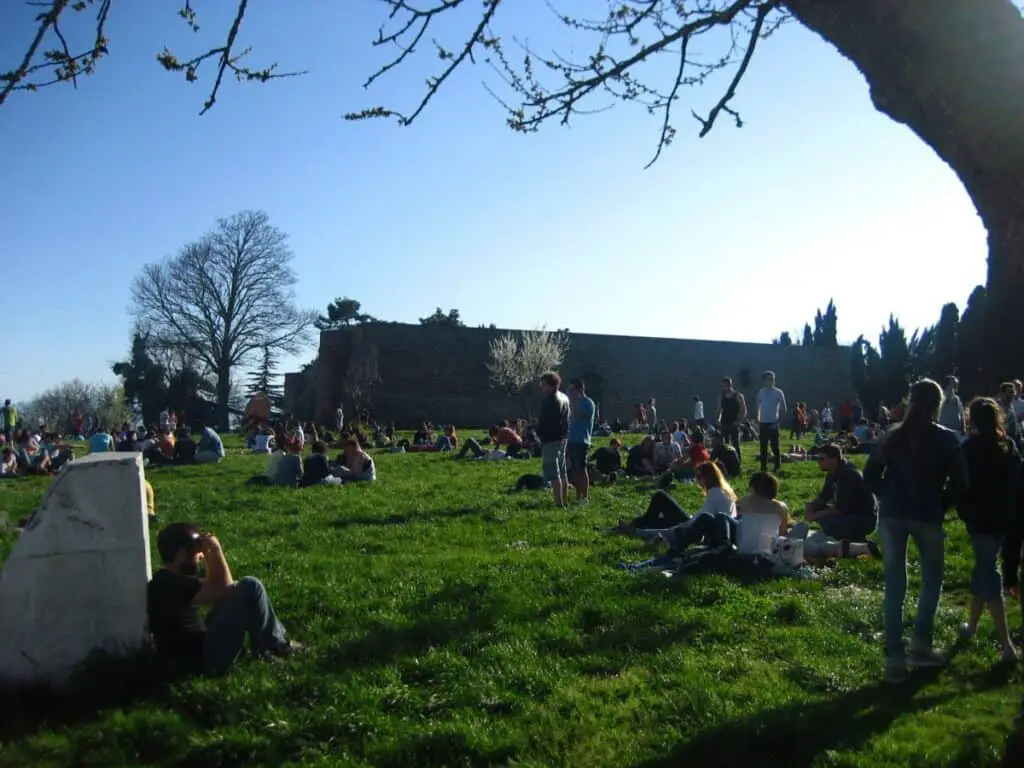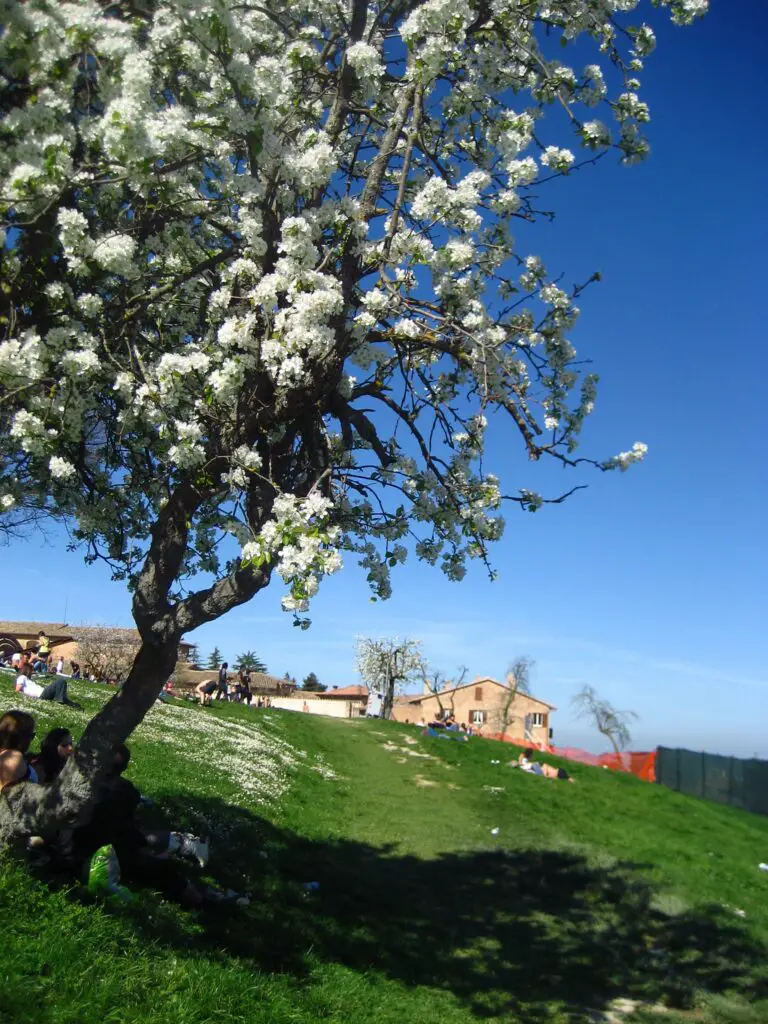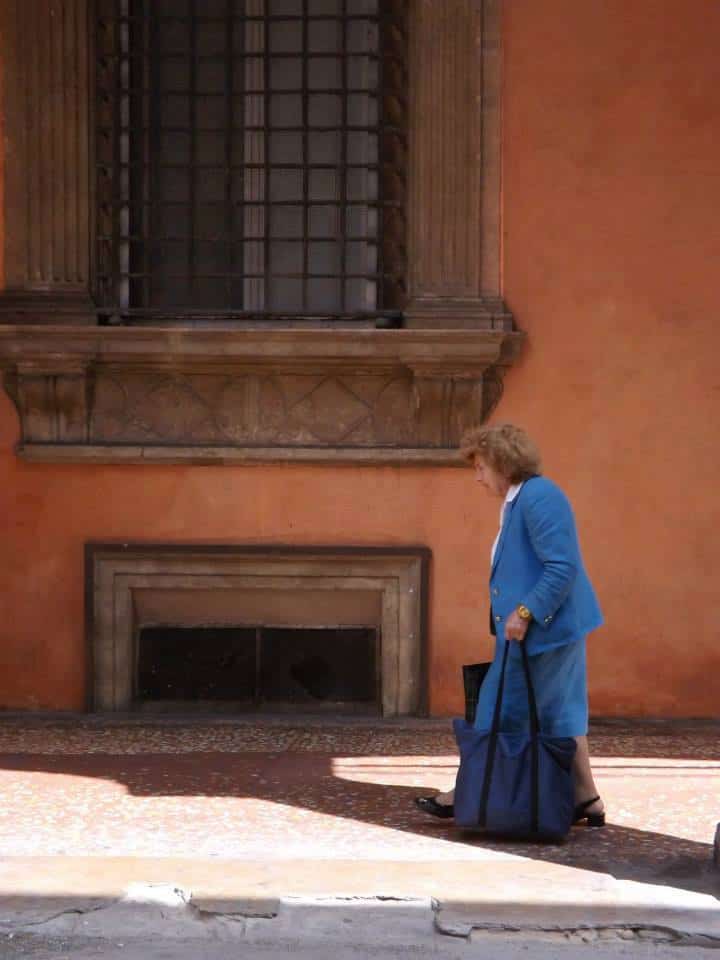Are you curious about what life is like for a typical teenager in Italy? The life of Italian teenagers is different in many ways to the life of teenagers in the US or UK.
As well as drawing on my own experience of growing up in Italy, I interviewed an Italian lady in her early twenties to get more insight into her experience during her teen years.
In this article, we will discuss different aspects of the life of Italian teenagers, from education, to hobbies and entertainment, to employment. Keep reading to find out more!
What is life like for teenagers in Italy?
Education in Italy is highly valued, and Italian families prefer their teenagers to be totally focused on their studies. For this reason, and because of the difficult Italian job market, it is very rare for an Italian teenager to have a job. Although Italian teenagers study very hard, the summer school break is three months, and most teenagers aren’t very busy during this time, and spend it resting and having fun.
How the week is structured for Italian teenagers
In the vast majority of cases, the school week in Italy runs from Monday to Saturday, with a finish time of 12:30 to 1pm.
Although Italian school days are shorter than in the US or UK, Italian students spend a lot of the afternoon doing homework or preparing for tests, mostly for the next day and, sometimes, for the following days of that week.
The structure of the Italian school week means that Italian teenagers only have Saturday afternoon and Sunday to rest. If a lot of homework is assigned before the weekend, teenagers may spend at least half a day on a Sunday to prepare for the week ahead.
The main Italian school holidays during the school year are over the Christmas and Easter periods. The school year then finishes in early June and a new school year begins in September.
This means that the summer holidays are quite long for Italian teenagers, who have much more time to rest during the summer.
Aside from doing homework, many Italian teenagers spend at least some time in the afternoons and evenings doing activities such as:
- Going out for casual walks with their friends
- Going round friends’ houses
- Taking part in sport activities
- Taking part in other hobbies or activities such as playing an instrument
- Playing video games, watching TV or other entertainment indoors
Do teenagers work in Italy?
It is relatively rare for Italian teenagers to be employed, for three main reasons:
- Because they spend a lot of time studying
- Because having a job is often perceived to be detrimental for teenagers, in that it distracts them from their studies
- Because there is low demand in the Italian job market
Let’s look at each of these reasons in more detail…
Italian teenagers spend a lot of time studying
The Italian school system is divided into:
- Pre-school (depending on family necessity 0 to 5 years). This is called Asilo in Italian.
- Elementary school – five years (6 to 13 years). This is called Scuola Elementare in Italian.
- High School – five years (13 to 18 years). This is called Scuola Superiore in Italian.
Compulsory education in Italy ends at the age of sixteen, however, only a very small minority of Italian teenagers leave school for employment at the age of sixteen.
Even those students who are in a type of high school called Istituto Tecnico (which is a technical college) tend to continue to study all the way until the age of eighteen, so it is extremely rare to find Italian teenagers under eighteen in full-time work.
In essence, the structure of the week for Italian teenagers leaves no room for weekend work, paid or unpaid.
During the summer school holidays, less than 50% of Italian teenagers have a part-time job. Most of them spend this time to do their school work, which is often substantial, and they tend to do this regularly during the summer. The rest of the time, they tend to rest and do enjoyable activities.
A paid job is seen by many families as distracting teenagers from their studies
Studying is seen as a full-time job for Italian teenagers, and there is a perception, both implicit and explicit, that teenagers having a job is not necessarily a good thing, because it distracts them from their most important activity, which is studying.
In the great majority of cases Italian families do all they can to support their teenagers financially through all stages of their education, often into university, and until their studies are fully completed.

Italian families tend to be protective of teenagers and there tends to be an assumption, and sometimes almost an expectation, that your family will help you financially, and so Italian teenagers aren’t under much pressure to get a job. .
As a general rule, teenagers in Italy ask their parents for money if they need or want something.
Those teenagers who do some weekend or part-time work during the summer holidays, who usually belong to less wealthy families, use this money to pay for leisurely things they might want, such as clothes and food when they go out with friends, rather than use it for rent, tuition fees, or other necessities.
There isn’t much demand in the Italian job market
Part of the reason why Italian teenagers are not expected to earn their own money is that there isn’t much demand for them on the job market. In fact, it is very hard for teenagers to find work in Italy.
In Italy there are fewer opportunities for teenagers to get involved in voluntary or paid work than in other countries.
The challenging Italian job market means that teenagers usually live with their families until they are financially ready to move out. Many times this readiness doesn’t come until a young person is well into their twenties or even later, depending on their location within Italy.
Many Italian companies prefer to only hire slightly older individuals, because they are the ones with more experience, but this makes it very hard for teenagers, and young Italian people in general, to support themselves while they study.
One of the most popular jobs for teenagers in Italy is waitressing in bars and restaurants along the coast. This work, however, is seasonal and only available during the summer months (June through to mid-September).

Finding suitable work for a teenager, such as stacking shelves or administrative support, is very hard in Italy. People who are in jobs tend to stay in those jobs for a long time, and so there isn’t much mobility in the job market, which makes it very difficult for a young person who has not had time to build up their experience.
Teenagers in Italy are also often employed informally, which means that they aren’t given a contract or paid for the work. This is known as “lavoro in nero”, and it’s very common across the country. Internships and work experience opportunities do exist (these are called “tirocinio”) but they are totally unpaid in the vast majority of cases.
Internships in Italy are not remunerated […] but they go on your CV because they are classed, for all intents and purposes, as work experience.
The Italian school system
Education in Italy is highly valued. Italian families prefer their teenagers to spend all their time studying, and resting when they are not studying, because education is considered to be their full time job.
The Italian education system is considered one of the best in Europe. Teenagers in Italy attend high school for five years, instead of the four years that is common in the United States.
Most Italian teenagers attend high school from the age of 14 until they turn 18, and during these four years, the students are required to take a range of compulsory subjects, as well as choosing two or three electives.
There is a lot of pressure on Italian teenagers to do well in their studies, and I remember studying a lot as a teenager in Italy, often well into the night and early morning.

One shortcoming of the Italian school system is that it is not very effective at preparing teenagers for the professional world. Teenagers in Italy are rarely asked what their career goals might be, and there isn’t a lot of career guidance or support in place to guide them through the steps they need to take to achieve those career goals.
The majority of Italian teenagers are pushed towards university, regardless of their interests or talents and there is often an implicit assumption that trades, starting up a business, or doing more practical work are a second choice reserved for those students who aren’t very academically talented.
What do Italian teenagers do in their free time?
As a general rule, Italian teenagers are very independent and manage their own time. It is common for teenagers in Italy to spend more time round friends’ houses, to study and spend time together, rather than at home.
Italian towns and cities are mostly safe, which means that there isn’t such a worry about teenagers being out and about and organising their own time how they want. They are often out all day as they may study with a friend after school and then go for a walk and not come back home until the evening.

Italian teenagers normally go to bed quite late, either because they are studying or spending time with friends, even on a school night. In Italy there is a strong culture of spending time together with peers and Italian families are very inclusive, so it’s not uncommon for a family to welcome their child’s friends as their own.
For Italian teenagers “going out” means leaving the house and taking a walk with friends, mostly spending time outdoors in parks, squares and other public places, as the Italian weather allows this most of the time.
Italy is not a drinking culture and so there is less prevalence of teenagers drinking or using drugs, compared to some other countries. Italian teenagers simply prefer to hang around together and, although they can be noisy at times, they are usually not up to anything bad or dangerous.
For leisure, Italian teenagers usually like to:
- Hang around with friends, walking and talking
- Meeting for ice-cream or food, mostly pizza
- Playing sports
- Going to clubs and beach bars (although this is reserved for older teenagers)
What is life like for Italian teenagers? Some concluding thoughts.
Italian teenagers, in general, have a good social life, and a good balance of cultivating friendships, family relationships, and focusing on their studies.
They generally lead a healthy lifestyle, which is characteristic of Italians of all ages, and drinking and drugs are relatively unpopular amongst Italian teenagers, compared to other countries.
A growing number of young Italian people eventually choose to move abroad, due to the challenges presented by the Italian job market and economy in general. Having grown up and spent their teenage years in Italy, however, gives them a very good start in life and normally sets them up to be balanced and successful individuals.






